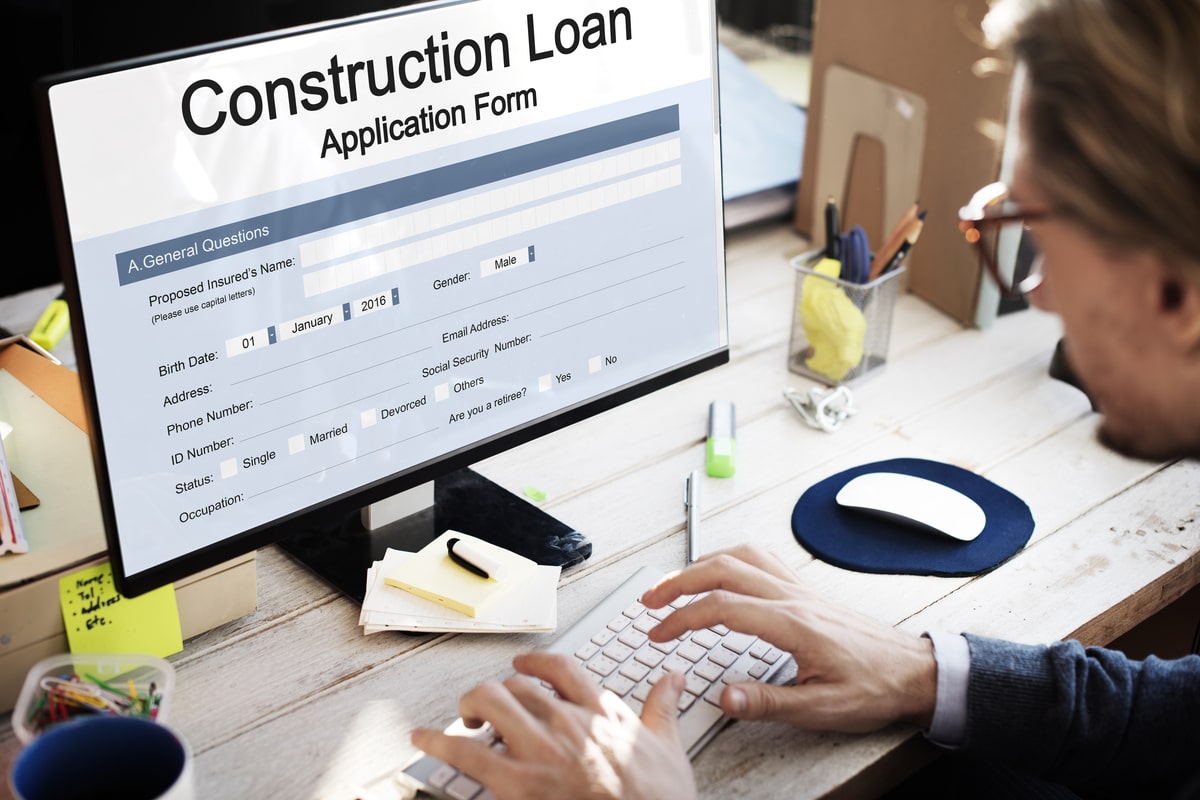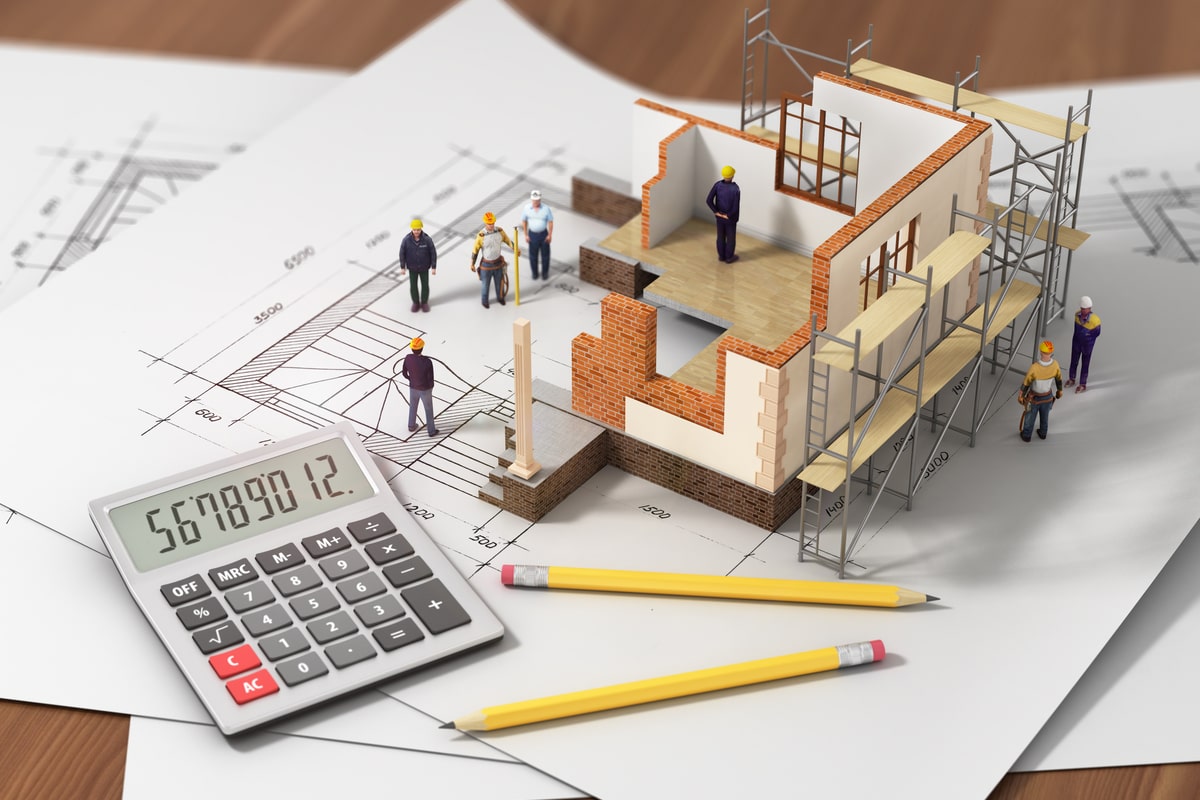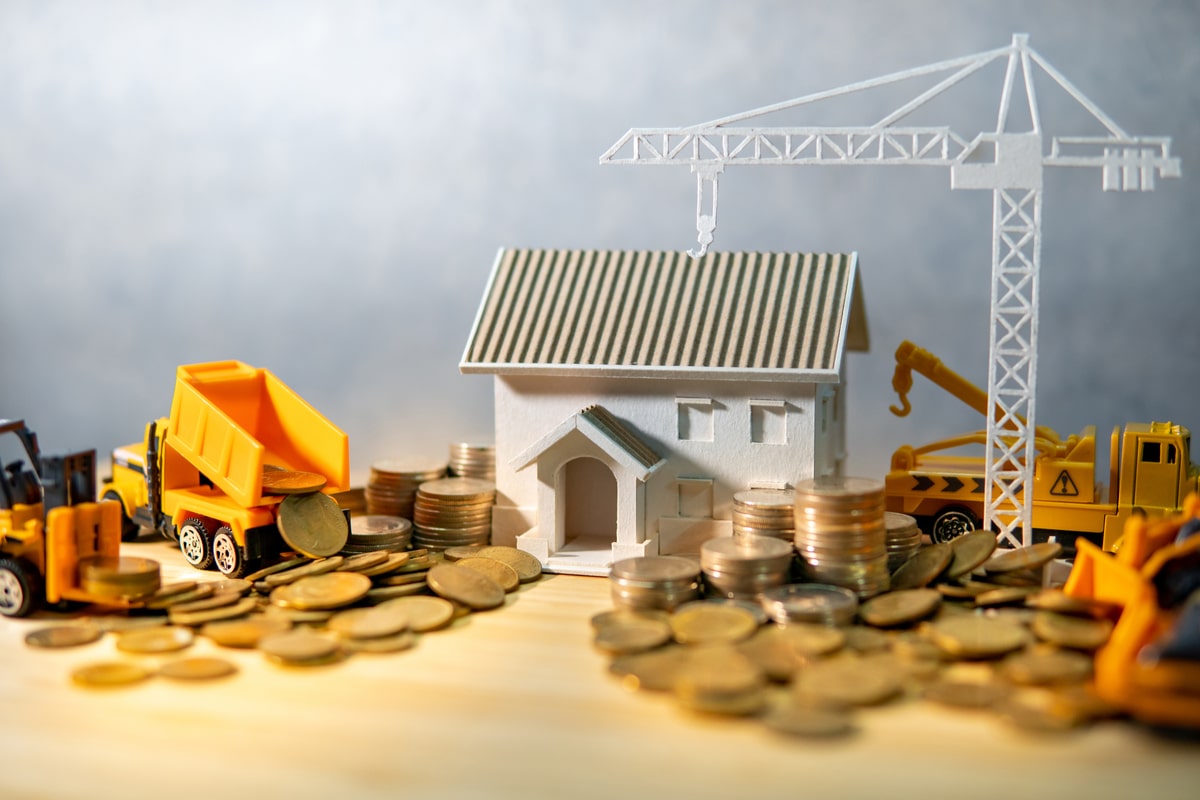So, you’ve poured your heart into your business and are finally ready to grow your operations. What’s standing in the way? The capital to construct a brand-new facility or expand existing space.
Finding financing for construction projects can be a challenge. But a commercial construction loan can give you the funds to build a new retail store, office space, or warehouse.
This detailed guide will walk you through the essential aspects of commercial construction financing, providing you with the knowledge and insights necessary to navigate the complex landscape of funding options, loan structures, and considerations specific to the construction industry.
Let's dive in and unlock the key to financing your construction dreams.
Commercial construction loans offer a temporary financial boost for building new or expanding existing commercial properties. Often used by contractors or business owners, construction funding can help cover project costs.

Keep in mind that interest rates for construction loans may be higher than conventional loans due to the risks involved in funding a new brick-and-mortar establishment.
Commercial construction loans can help cover costs such as land acquisition, contractor fees, building materials, permits, and other essential aspects of the construction process. However, they usually do not cover furnishing expenses. Permanent fixtures like landscaping might be included in the loan.
The property usually serves as collateral, making the loan a secured real estate financing option.
Commercial construction loans are designed to support property development that will generate additional revenue for the business. These loans are commonly used for acquiring or building various types of business-related properties, including:
A commercial construction loan can provide several benefits to individuals or businesses looking to construct a commercial property, including:
Once a suitable lender is found, the application process will begin. Be ready to submit financial records, documents, and property details. Keep in mind the process may be lengthy, and a key requirement is that the small business occupies at least 51% of the building.
In commercial construction lending, there is a range of conventional and non-traditional options. When pursuing funding, conduct a thorough assessment of each potential lender. Some of the options include:
Commercial construction financing can be found through banks catering to different types of properties. Typically, the property must be owner-occupied (meaning the owner is currently using the space) to qualify for a commercial construction loan from a bank.
| Pros | Cons |
| Lower interest rates | More documentation |
| Long-term funding possibilities | Lengthy application process |
| Flexible repayment options | Requires good or excellent credit |
Aside from banks, several non-bank lenders may provide commercial real estate construction loans. Borrowers should note that rates are usually higher. However, if you require a fast cash loan, then this could be a viable option.
| Pros | Cons |
| May consider applicants with bad credit | Higher interest rates |
| May offer faster approvals | Typically offer loans with shorter terms |
The primary difference between a commercial construction loan and a traditional mortgage is their repayment processes. In a traditional mortgage, borrowers receive the entire loan amount at once. Then, the borrower makes monthly payments, including principal and interest, until the loan is fully repaid.
On the other hand, commercial construction loans provide a more flexible repayment process tailored to the project's needs. Instead of a single lump sum, the loan amount is disbursed in stages, known as draws, as the construction project progresses.
These draws correspond to the completion of specific milestones or phases of the project. This staged disbursement ensures that funds are available when needed and prevents misuse or misallocation of funds.
During the construction phase, borrowers are generally only required to make interest payments on the disbursed amount. These interest-only payments can help reduce the borrower’s financial burden while the project is underway.
Once construction is finished and the project is complete, the borrower transitions to a repayment phase. During this stage, the borrower repays the principal and interest in full through monthly payments.
When it comes to commercial construction loans, interest rates tend to be higher than those for traditional home loans. This variation in interest rates is influenced by factors such as the borrower's credit score, financial history, or current market trends.
As a general rule of thumb, these rates can range from 4% to 12%, so it's worth exploring your options before making a decision.
Commercial construction loans often come with extra fees that are not likely to appear with traditional loans. The fees may include the following:
When it comes to standard mortgages, the down payment can be as low as 3%. On the other hand, commercial construction loans typically require a higher investment, ranging from 10% to 30%.
Securing a construction loan can be trickier than other traditional loans because you'll be requesting funds for a building that doesn't exist yet.

To help you navigate this process, we've outlined six key requirements for commercial construction loans. By meeting these criteria, borrowers may increase their chances of securing a commercial construction loan with favorable terms and interest rates.
Business and Personal Financial Records. Loan officers might require applicants to provide business and personal financial documents, such as tax returns, profit and loss statements, and a business plan. Additionally, lenders often conduct thorough business and personal credit checks. Introducing a comprehensive schedule of values alongside these documents will provide a transparent breakdown of anticipated costs, showcasing your meticulous financial planning for each phase of the construction project
Debt-to-Income Ratio. Debt-to-Income (DTI) ratio is a financial metric that compares a company's monthly debt payments to its gross income. Lenders typically prefer a debt-to-income ratio of 43% or lower. A healthy debt-to-income ratio demonstrates the company's ability to manage its financial obligations and upcoming receivables while maintaining a steady cash flow.
Construction Plans. Lenders appreciate comprehensive construction plans and will want to review building designs and contractor proposals.
Property Appraisal. Before processing or approving the loan, lenders may conduct an appraisal to ensure the value of the project is equal to the amount borrowed.
Down Payments. Down payments usually range from 10% to 30% of the total estimated costs. Most lenders rely on a loan-to-cost calculator to determine the down payment amount. Lenders may also assess the credibility and qualifications of the builder hired for the project.
Repayment Strategy. Having a repayment strategy is advisable. For instance, lenders might inquire whether you intend to repay the loan in cash or refinance once the construction is finished.
With their higher risk profile, commercial construction loans for businesses can be more challenging to secure than traditional loans.
Expect to pay a significant down payment of 10% to 30% and have a strong credit score. Lenders may also check your contractor’s background to ensure they have a proven track record.
Construction loans are considered a highly flexible type of fast cash; this is why they often come with higher qualifying standards.
A commercial construction loan can provide the necessary funding to construct a new commercial property or renovate an existing one.
By increasing the property's value, improving operations, and potentially leading to higher rental rates or resale value in the future, commercial construction loans can help achieve long-term financial goals.

Additionally, flexible loan terms can provide customized repayment schedules and interest rates to better suit the borrower's unique needs.
Commercial construction loans typically feature interest-only payments during the construction phase. This means borrowers must only pay the interest on the outstanding loan balance each month rather than making principal and interest payments. This structure helps reduce the borrower's financial burden during construction, allowing them to focus on completing the project before transitioning to full principal and interest repayments upon completion.
Interim construction loans are a type of commercial construction loan that serves as a short-term solution for small expenses that crop up during construction.
These loans can help cover the costs of labor and materials, bridging the gap between draw periods. Think of them as the "glue" that keeps your project moving forward when unexpected expenses arise.
Interim construction loans are usually paid back over 18 to 36 months.
The funds from a construction loan can be used for various purposes related to the construction or renovation of a building. Here are some common uses for construction loan funds:
Note that construction loan funds typically cannot be used for furnishing expenses or operating costs unrelated to the construction project. The specific uses of funds may vary depending on the terms and conditions of the construction loan agreement.
Construction costs can sometimes exceed the amount of your commercial construction loan, leaving you to foot the bill. In these instances, you may be able to obtain an interim construction loan.
The funds from this loan can be used to cover the costs of labor, materials, and other unexpected expenses, effectively bridging the gap between draw periods and keeping the project moving forward.
Commercial loan costs vary depending on the loan amount, interest rate, term length, and lender fees.
Here are some aspects that can influence the cost of a commercial construction loan:
Let's say a business owner wants to construct a new commercial property costing $750,000. To fund the project, they apply for a commercial construction loan of $600,000 at a 6% interest rate.
The lender requires a down payment of 20%, or $150,000, which the borrower pays upfront.
Once construction is complete, the borrower enters the repayment phase and repays the principal and interest over two years (24 months) with monthly payments of $26,592.37. Over the life of the loan, the borrower will repay a total of $638,216.79, which includes $38,216.79 in interest.